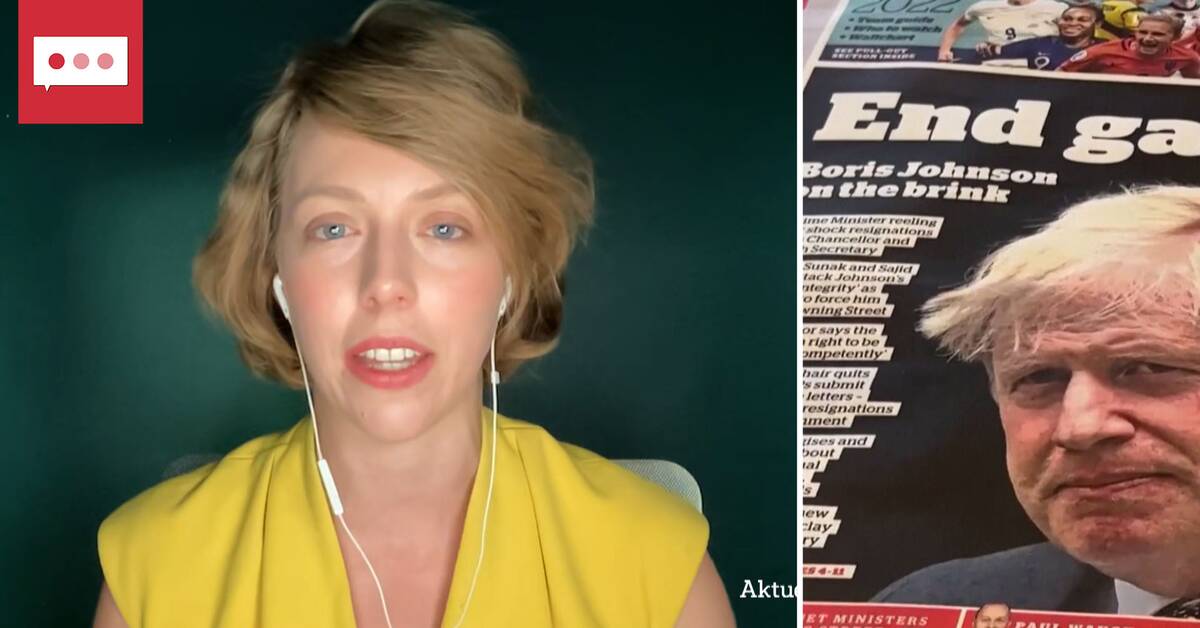On Tuesday, Finance Minister Rishi Sunak and Health Minister Sajid Javid resigned, and on Wednesday, more than 30 ministers and officials resigned.
The departure of Johnson's government comes in the wake of MP Chris Pincher being forced to resign following allegations of sexual harassment.
Johnson first said he did not know about the allegations - a statement for which he later apologized.
- It is not only the scandals, but also Boris Johnson's personality, his tendency to lie and his, in the party's view, ability to make things worse, which means that votes are now raised for his resignation, says Katrine Marçal.
The Pincher scandal was discovered shortly after Boris Johnson passed the no-confidence vote that followed the "partygate" by the smallest possible margin.
Since Johnson survived the previous vote, he must not, according to the rules, face a new one for at least one year.
- But those rules can be changed and that is what you want to do on Monday.
In that case, there will be a new no-confidence vote on Tuesday, Marçal says.
Why are the ministers resigning, can Johnson be removed and why is he not resigning voluntarily? Hear Katrine Marçal explain in the clip above.

